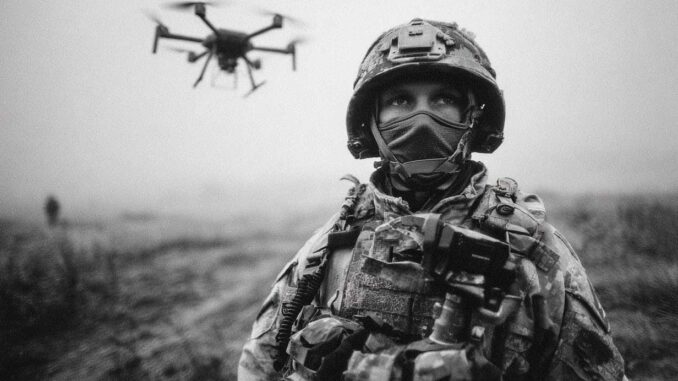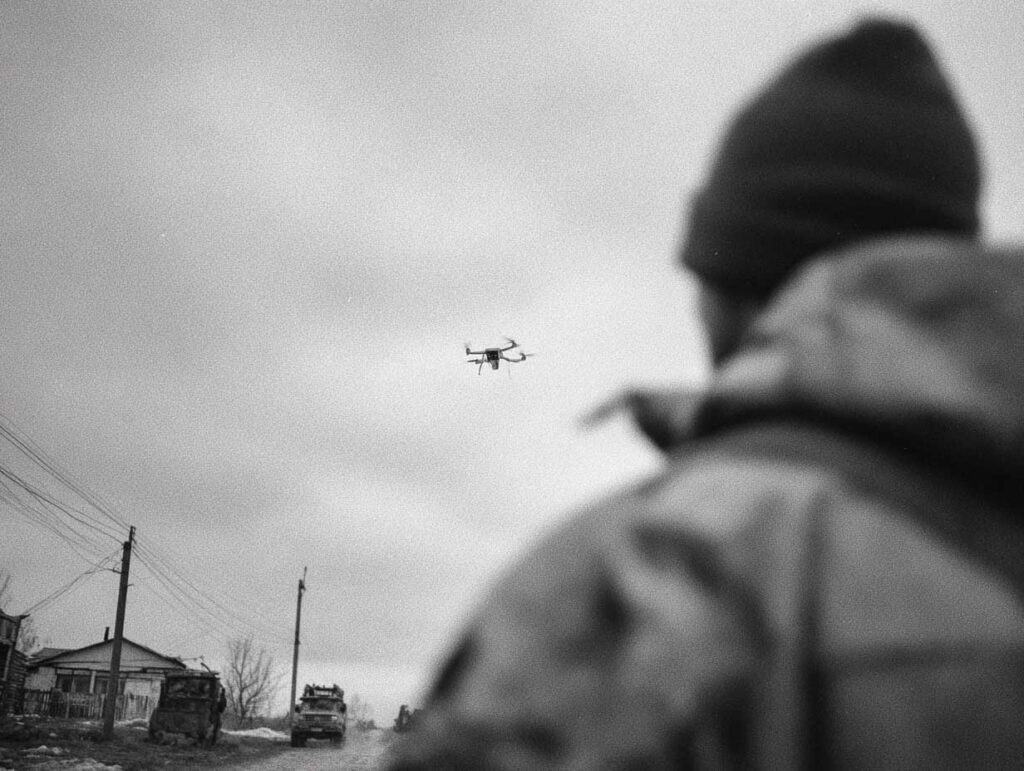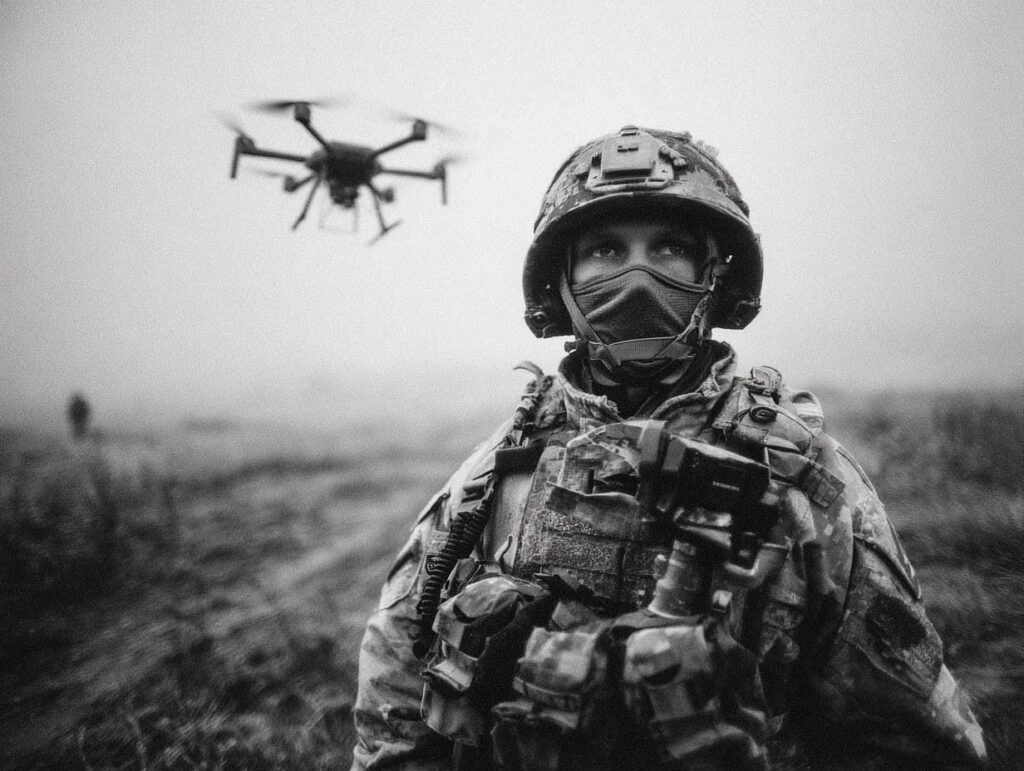
Members of Mexican and Colombian cartels are infiltrating Ukraine to undergo military training in combat FPV drones.
Targeted infiltration of foreign units in Ukraine
Ukrainian counterintelligence services have launched an investigation into the infiltration of operators linked to Latin American cartels into the International Legion, with the main objective of learning FPV drone combat techniques. These skills, which are now crucial on the Ukrainian front, are of increasing interest to transnational criminal groups wishing to import these methods into their areas of influence, particularly in Mexico and Colombia.
The case was triggered by an alert from Mexican intelligence services in early summer 2025, reporting the presence of Spanish-speaking nationals in foreign volunteer units operating in Ukraine. The objective of some of these individuals was clear: to master tactical drone technology for use in local conflicts against security forces and rival organizations.

Organized use of false identities and private networks
The investigation, conducted jointly by the SBU (Security Service of Ukraine) and military intelligence services, revealed advanced infiltration methods. Several documented cases show that individuals linked to Latin American criminal organizations were able to enter Ukraine using false documents, multiple identities, and private security companies.
One of the most successful cases involves a Mexican national using the alias “Águila-7”, who was registered in March 2024 with falsified Salvadoran documents. Officially registered as a humanitarian volunteer, he was quickly integrated into a comprehensive FPV drone training program in Lviv, where his technical skills quickly alerted the instructors.
According to initial findings, this individual had advanced knowledge of electronic jamming, thermal stealth, and radar neutralization, suggesting a likely past with the GAFE special forces. However, several former members of this elite Mexican unit have historically joined the ranks of powerful cartels, notably the Zetas, transferring their military expertise to criminal groups.
Well-established criminal structures for infiltrating Ukraine
The modus operandi observed in these infiltrations demonstrates a solid logistical capability. Security companies based in Central and South America appear to have facilitated recruitment, logistics, and identity concealment. Former guerrilla fighters from the Colombian FARC are also believed to have used falsified Panamanian and Venezuelan documents to join the Legion.
Ukrainian intelligence services have identified at least three confirmed cases of former FARC combatants who have passed through these structures, with the help of networks linked to cartels, and with a level of coordination suggesting clearly planned tactical intentions.
These infiltrations are not opportunistic individual initiatives. They are structured operations aimed at acquiring specific skills, including drone manufacturing, real-time battlefield coordination, and resistance to electronic warfare systems—exactly the type of military expertise the cartels need to maintain their local superiority.
A security drift initially ignored by Ukraine
Ukraine, at war since 2022, has opened its doors to thousands of foreign volunteers, within units such as the International Legion or various tactical groups operating on the Donetsk and Kharkiv fronts. This openness, based on a logic of international solidarity, has been accompanied by sometimes limited controls, particularly for individuals who speak several languages or have a background in regular armies.
The Spanish-speaking “Ethos” cell, mentioned in several reports, has been identified as one of the main entry points. This unit, which is active in reconnaissance and combat missions in urban areas, has an internal drone training program, making it a prime target for those seeking to acquire this expertise in a real-world setting.
This initial laxity allowed several unidentified elements to fly under the radar for several months, until administrative inconsistencies, advanced technical skills, and certain financial or communication signals triggered more thorough checks.

Uncontrolled spread of asymmetric warfare methods
This case reveals a broader phenomenon: the uncontrolled transfer of military expertise to non-state actors, some of whom are hostile. The asymmetric warfare techniques developed in Ukraine, particularly in the areas of low-cost FPV drones, thermal decoys, jamming, and coordination via encrypted messaging, are now sought after by all armed groups seeking to maintain an operational advantage.
An FPV drone manufactured in Ukraine costs around $400, but can inflict damage comparable to a targeted artillery strike, while being remotely piloted with precision by mobile operators. This effectiveness, combined with the weapon’s low logistical footprint, makes it ideal for groups operating in urban or semi-urban areas such as the cartels in the states of Sinaloa, Michoacán, and Tamaulipas.
An SBU official interviewed by the press acknowledged that Ukraine had unwittingly become a global hub for the dissemination of FPV drone tactics, with likely repercussions for regional stability in the medium term.
An underestimated international security challenge
The situation highlights an underestimated issue: the risk that war zones will become training grounds for foreign criminal actors. Unlike regular units, structures such as the International Legion do not always have the means or protocols to detect high-risk profiles, especially when they act in a coherent manner, with solid identities, controlled trajectories, and disciplined behavior.
The issue goes beyond Ukraine. Low-cost warfare technologies, derived from active conflicts, are now circulating beyond traditional borders via private networks, digital platforms, and relays located in legal gray areas.
Latin American cartels, already engaged in accelerated militarization for the past decade, find fertile ground here to professionalize their forces, modernize their doctrine, and strengthen their territorial control. FPV drone training obtained in a real war context becomes a local force multiplier, including against national armed forces.
War Wings Daily is an independant magazine.